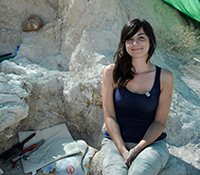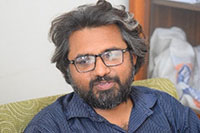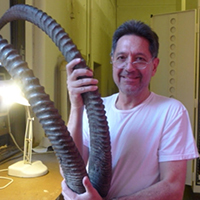 María Ríos. Departamento de Ciências da Terra, NOVA School of Science and Technology, Universidade Nova de Lisboa, GeoBioTec, 2829-516 Caparica, Portugal. maria.rios.iba@fct.unl.pt
María Ríos. Departamento de Ciências da Terra, NOVA School of Science and Technology, Universidade Nova de Lisboa, GeoBioTec, 2829-516 Caparica, Portugal. maria.rios.iba@fct.unl.pt
Dr. Maria Rios is a Junior Researcher at the NOVA University of Lisbon - School of Science and Technology. She began her postdoctoral journey in September 2020 under the prestigious postdoctoral Stimulus of Scientific Employment, Individual Support 2018 grant. Maria is affiliated with the GeoBioCiências, GeoTecnologias e GeoEngenharias (GeoBioTec) research unit, and her primary research focus is investigating the macroevolutionary dynamics of the Giraffomorpha. During her doctoral studies, Maria made significant contributions to the field. She described a new species of giraffid, Decennatherium rex, and created the first quantitative data matrix for the Giraffidae. Additionally, Maria established the @paleomamal lab, which provides a platform for disseminating research findings to the public. Currently, Dr. Rios holds the position of Scientific Coordinator at the GEAL-Museu da Lourinhã.
![]()
 Sayyed Ghyour Abbas. Department of Zoology, University of Sialkot, Daska Rd, near Victoria Palace, Beerh, Sialkot, Punjab, Pakistan. ghyour.kazmi@gmail.com; and Dr. Abu Bakr Fossil Display & Research Centre. Department of Zoology, University of the Punjab, Quaid-e-Azam Campus, Lahore, Punjab, Pakistan, 54590.
Sayyed Ghyour Abbas. Department of Zoology, University of Sialkot, Daska Rd, near Victoria Palace, Beerh, Sialkot, Punjab, Pakistan. ghyour.kazmi@gmail.com; and Dr. Abu Bakr Fossil Display & Research Centre. Department of Zoology, University of the Punjab, Quaid-e-Azam Campus, Lahore, Punjab, Pakistan, 54590.
Dr. Sayyed Ghyour Abbas is a prominent figure in the field of paleontology, with a specific focus on the Late Miocene fauna of Pakistan. He serves as a Research Assistant Professor at the University of Sialkot, contributing significantly to the understanding of prehistoric mammalian evolution in the region.
![]()
 Muhammad Akbar Khan. Dr. Abu Bakr Fossil Display & Research Centre. Department of Zoology, University of the Punjab, Quaid-e-Azam Campus, Lahore, Punjab, Pakistan, 54590. akbar.zool.@pu.edu.pk
Muhammad Akbar Khan. Dr. Abu Bakr Fossil Display & Research Centre. Department of Zoology, University of the Punjab, Quaid-e-Azam Campus, Lahore, Punjab, Pakistan, 54590. akbar.zool.@pu.edu.pk
Dr. Muhammad Akbar Khan is a distinguished Professor at the University of the Punjab, Pakistan, specializing in vertebrate paleontology, with a particular focus on Miocene-Pleistocene mammalian groups. His research interests primarily revolve around the Siwalik Neogene Mammals, encompassing a broad spectrum of disciplines such as paleoecology, functional morphology, evolution, systematics, comparative anatomy, and taxonomy.
![]()
 Nikos Solounias. Department of Anatomy, New York Institute of Technology College of Osteopathic Medicine, 8000 Northern Boulevard, Old Westbury, New York 11568, USA. mdanowit@nyit.edu and Department of Paleontology, American Museum of Natural History, Central Park West at 79th Street, New York, New York City 10024, USA.
Nikos Solounias. Department of Anatomy, New York Institute of Technology College of Osteopathic Medicine, 8000 Northern Boulevard, Old Westbury, New York 11568, USA. mdanowit@nyit.edu and Department of Paleontology, American Museum of Natural History, Central Park West at 79th Street, New York, New York City 10024, USA.
Dr. Nikos Solounias is a professor of anatomy at NYIT College of Osteopathic Medicine. An expert in modern and paleontological ungulate anatomy and biology, he has more than 40 years of experience in the research and teaching of mammalian anatomy and evolution. Dr. Solounias has published more than 80 articles in peer-reviewed journals and has been awarded four NSF grants. He received his B.S. in Biology from Cornell University and an M.A. in Biology-Embryology from Clark University. He earned his Ph. D. in Geology-Paleontology from the University of Colorado, Boulder and has held postdoctoral positions at Yale, Harvard, and Johns Hopkins universities. He studied anatomy and embryology at the Harvard Medical School.

